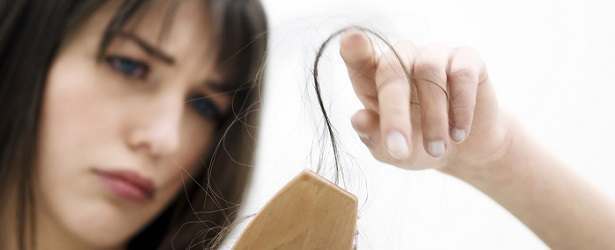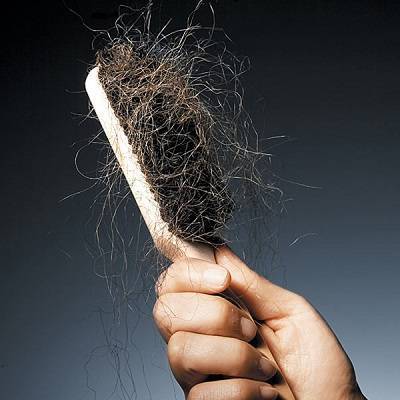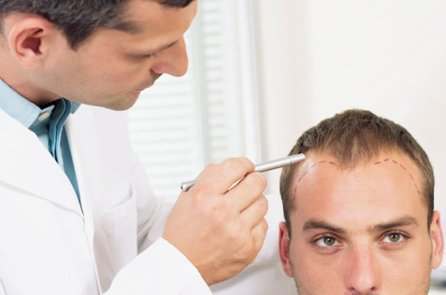
Hair Loss Causes
We all lose hair every day. How much hair we lose varies from person to person, and when to be concerned about your hair loss really depends on what is normal for you. Generally, when bald spots start to appear, or when the hair seems to be shedding in clumps rather than a few strands, is when you may need to address the situation. Of course, there are the more common, genetic reasons we lose our hair. Take male pattern baldness, for example. This is something that will occur for many men across the world and something that is, generally, accepted as part of the ageing process in humans.
But what if rapid, or quantitative, hair loss occurs that cannot be put down to age or genetics? There are several other factors that need to be considered when seeking blame for the shedding of hair. Hormones, thyroid problems, infections, certain medications and diseases can all contribute to follicular malfunction.
In terms of hormones affecting hair loss, particularly in women, this can be to do with childbirth, either pre or post, as well as the menopause. In men, as they get older their hormonal composition changes which can affect many areas of their body, including their hair.
Thyroid disorders are perhaps the biggest hormone related cause of hair loss. Having both an over-active thyroid gland, and an under-active thyroid gland can lead to hair loss unless treated appropriately.
 It is not just our hormones that affect how our bodies shed hair. In terms of nutrition, a lack of iron and/or zinc in your diet can contribute to a weakened follicular structure. Stress, both mentally and physically, is a factor that can also lead to hair loss. So anything from a hectic lifestyle or high pressure job, to a surgical procedure or loss of blood can cause you to lose your hair.
It is not just our hormones that affect how our bodies shed hair. In terms of nutrition, a lack of iron and/or zinc in your diet can contribute to a weakened follicular structure. Stress, both mentally and physically, is a factor that can also lead to hair loss. So anything from a hectic lifestyle or high pressure job, to a surgical procedure or loss of blood can cause you to lose your hair.
Some medications, such as beta-blockers and anti-depressants, can be linked to hair loss, which you may think is a sacrifice well worth taking in order to improve your health in other areas, but hair loss has been proven to affect us in number of highly negative ways.
Hair loss has been linked with lower self-esteem, body image and increased anxiety. So hair loss can affect us in many more ways than we may at first think. Although it does not affect us in a drastically physical way it can have a very negative effect on us mentally. In short, hair loss is something that most of us would like to avoid as it could mean losing more than just the hair on our heads itself, we could indeed end up with losing a sense of dignity and self-esteem. Fortunately, there are many options available for both blocking the causes of hair loss, as well as reversing the process once it has started.
TOP 5
HAIR GROWTHTreatments |
|||||
| HairNu | Aviva Advanced Hair Nutrition | Har Vokse Hair Growth | J.F. Lazartigue | Simply Supplements | |
|---|---|---|---|---|---|
| 1 | 2 | 3 | 4 | 5 | |
| Price (1 bottle)
Price (6 bottles) Best Value |
$49.95 $139.70 |
$39.95 $119.89 |
$24.00 $134.00 |
$41.00 $221.40 |
$54.56 $294.62 |
| Overall Rating | 99.60% | 88.20% | 80.90% | 77.80% | 69.10% |
| Performance* |





|





|





|





|





|
| Speed of Results* | Extremely Fast | Good | Average | Average | Slow |
| Quality of Ingredients | Premium | Good | Good | Average | Average |
| Customer Satisfaction Evaluation | 99.00% | 86% | 80% | 75% | 66% |
| Safety Evaluation | Safe for Use | Safe for Use | Safe for Use | Safe for Use | Safe for Use |
| Customer Service Rating |





|





|





|





|





|
| Reorder Rate | Highest | Good | Good | Average | Average |
| Return Policy | Risk Free | Risk Free | Unopened Only | Unopened Only | Risk Free |
| Success Rate | 99% | 85.20% | 78% | 74% | 67% |

 Subscribe Now
Subscribe Now










